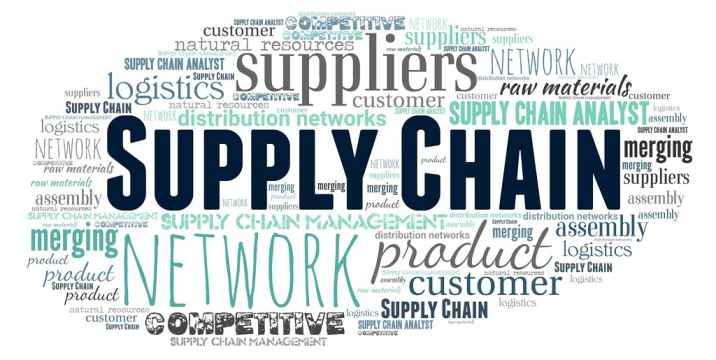Benefits of Supply Chain Management; Career in SCM


What is supply chain management?
Supply chain management is the process of managing the flow of goods and services from their source all the way to the customer. It starts from acquiring the necessary supplies to the final stage of shipping the finished product to the consumer. The goal of supply chain management is to optimise the business's supply chain to optimise their processes, make them cost-effective and maximise the value for the customers. When done right, this also helps businesses gain a competitive edge in the marketplace.
What does a Supply chain manager do?
A supply chain manager is responsible for all stages of a company's supply chain, from raw material purchase to production. They are the professionals who ensure that products arrive on time and storage systems are coordinated to avoid loss or damage in the entire complex procedure.
As the modern world’s supply chain involves multiple sections such as manufacturing, warehousing, packaging, transportation and delivery, IT, and logistics, the responsibilities of a supply chain manager are varied and this also makes way for multiple employment opportunities.
Some of the most promising jobs in Supply Chain Management are Logistics Resource Planner, Maintenance Manager, Quality Manager, Production Planner, Warehouse Manager, Purchasing Manager, and Inventory Controller.
Across the board, here are some of the duties and responsibilities that various supply chain managers will be working on:
Why do businesses implement supply chain management /Need for supply chain management in every business
Enhanced cash flow:
An effective supply chain management system enables businesses to make better decisions, choose the right partners and thereafter accurately anticipate and respond to market and demand changes. Having the advance information also helps to mitigate any arriving supply chain disruptions, making it imperative that businesses have a competent supply chain management team in place.
Greater data visibility:
A Supply Chain Management system will also highlight the day-to-day processes of the supply chain, providing decision makers with information about areas of underperformance and also about areas where unpredictable demand may arise soon. Such elements allow the business owners to analyse the situation and come up with strategies based on the supply chain’s size, performance, and complexity.
Maintaining relationship:
One of the biggest benefits offered by a supply chain management system is the assessment and maintenance of supplier relationships. With the advancement of technology in the current world, the software in use includes features that permit users to compare and weigh supplier costs and the services provided by them, which provide the personnel working with the data they need.
Is supply chain management a good career option
Needless to say, the supply chain management system is the backbone of the country's economy. A well-structured and efficient supply chain infrastructure accelerates consumption growth in both rural and urban areas. In the current economic scenario a company's survival depends heavily not only on innovative and viable business strategies, but also on supply chain management, making it an in-demand career choice to pursue.
Courses in supply chain management
For those wanting to get into this area of management, the course to do is an MBA in Logistics and Supply Chain Management or a similar domain. Some of the top ranked institutes in the country offering the course are:
As online education is also becoming popular, one of the latest courses: Global Management Programme in Operations and Supply Chain by The Indian School of Business available at Coursera is also an appropriate choice to make.
Supply chain management includes the management of the entire production process within an organszation integrating various channels and members of the supply chain. There is obviously a great need for people to take up various ‘links’ in this chain, and work collaboratively for it to function smoothly. So are you ready to proactively manage supply chain activities and gain a sustainable competitive advantage for your company?